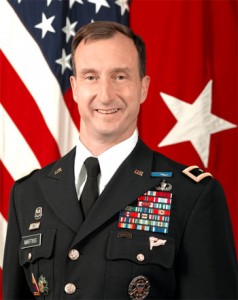The Kangaroo Court Unplugged
Carol Rosenberg, Jason Leopold, Charlie Savage, and Ryan Reilly all have updates on the Gitmo Military Commission’s efforts to pretend they control the proceedings of the court room, and not someone like John Brennan or the CIA.
All of them note that Judge James Pohl promised that Monday’s censorship won’t happen again. Savage adds an interesting detail: the suggestion that the censorship represented a disagreement between the Military Commission and the censor–presumed to be the CIA.
“This is the last time,” Colonel Pohl said, that any party other than a security officer inside the courtroom who works for the commission “will be permitted to unilaterally decide that the broadcast will be suspended.”
He added that while some legal rules and precedents governing the military commissions were unclear, there was no doubt that only he, as the judge, had the authority to close the courtroom. While officials may disagree about whether classified information had been improperly disclosed, he made clear he would not tolerate any outside party having control over a censorship button in his case.
“The commission will not permit any entity except the court security officer to suspend the broadcast of the proceeding,” Colonel Pohl said. “Accordingly I order the government to disconnect any ability of a third party to suspend broadcast of the proceeding, and I order any third party not to suspend proceedings.” [my emphasis]
This actually raises an interesting parallel with Article III Courts. There, DOJ has repeatedly insisted that courts have no authority to determine what is classified or not. On rare occasions, a Court will overrule the government.
This conflict appears to arisen from the same kind of disagreement, one made stark because of the censorship button. But ultimately, the Executive Branch was again insisting that only it can say, legally, what counts as classified.
Rosenberg raises a parallel issue: claims by DOJ lawyer Joanna Baltes, who oversees classification issues, that the Original Classification Authority in question was part of the Military Commissions. Pohl disagrees.
“An OCA does not work for the commission,” he said, the Pentagon term for the war court, “and has no independent decision-making authority on how these proceedings are to be conducted.” On Tuesday, civilian 9/11 prosecutor Joanna Baltes cast the role of the OCA as an approved extension of the military commissions.
“The OCA, original classification authority, reviews closed-circuit feed of the proceedings to conduct a classification review to ensure that classified information is not inadvertently disclosed,” she said in a note to the judge. “When the parties do press the mute button on the microphone, no audio is transmitted through the closed feed.”
Rosenberg raises one more important point: CIA screwed up during one of the first moments that the 40-second delay ordered by Pohl was in place.
Monday’s outside censorship episode occurred on the first day of proceedings after the judge formally approved the 40-second audio delay in the Sept. 11 trial, rejecting an American Civil Liberties Union argument that it transformed a live court into a “censorship chamber.”
Boy, the CIA sure wasted no time in validating the ACLU’s concerns?
As Reilly lays out, the incident has only raised the concerns of the Defense Attorneys.
“Who is pulling the strings? Who is the master of puppets? We have more questions than we have answers,” said Walter Ruiz, an attorney for Mustafa al Hawsawi, an alleged al Qaeda money courier.
David Nevin, a lawyer for KSM, said it would “open a number of questions” if indeed someone based in the U.S. had the ability to cut off the feed of the courtroom facility. Martins had declined to say whether the secret censor was based either in the U.S. or was located somewhere on Guantanamo Navy Base.
James Harrington, a lawyer for Ramzi Binalshibh, said a federal judge would have never put up with someone else having the ability to cut off access to his courtroom.
“I have been practicing for over 40 years in federal courts in the United States, if this had happened before any federal judge that I know of, this proceeding would have been stopped. There would have been hell to pay. Hell to pay,” Harrington said.
It’s going to be very hard to unring this bell, not matter how assiduously General Mark Martins tries to establish its independence (and last week’s fight over the inclusion of conspiracy charges had already damaged that).

